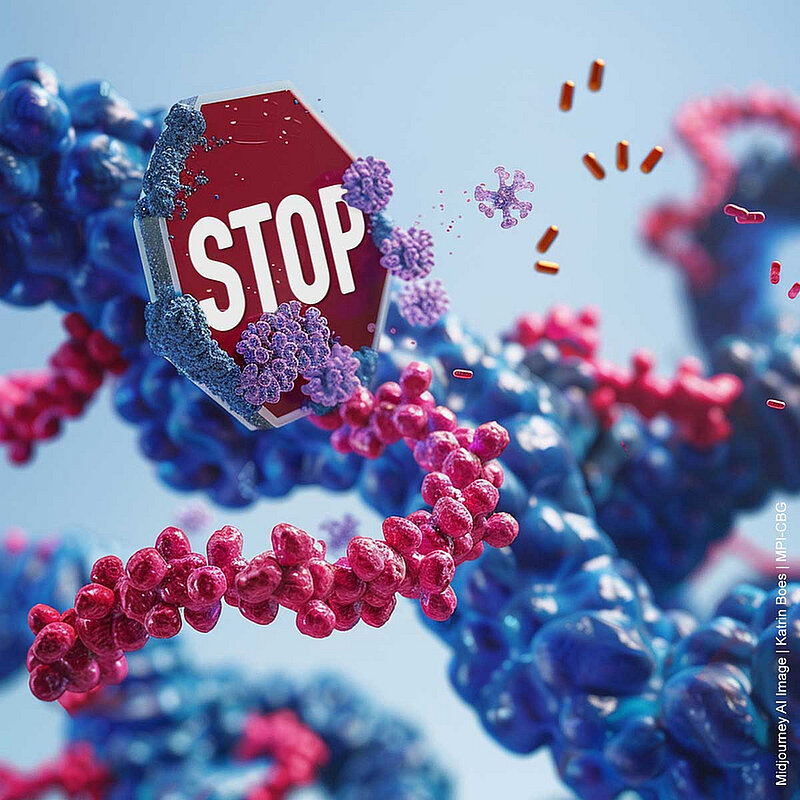The research group of Agnes Toth-Petroczy (a PoL affiliate) at the Max Planck Institute of Molecular Cell Biology and Genetics (MPI-CBG) and the Center for Systems Biology Dresden (CSBD) wanted to understand how often cells make mistakes when reading stop signs in their genetic instructions and how temperature and nutrient depletion affects these mistakes. In their new study published in Nature Communications, the researchers examined how common these errors are, what factors might influence them, and where they come from.
The genetic material, the DNA, is like a recipe book for making proteins. Sometimes, when cells are reading these recipes, they make mistakes. When they come across a stop sign that tells them to halt the production of a certain protein instead of stopping, the cells accidentally ignore the sign and keep making the protein, creating a longer version of the protein, which looks like a protein with a “tail”. These longer proteins might not work the same way as normal ones, leading to changes in how the cell behaves and to a change in how the cell functions.
Maria Luisa Romero Romero, the lead author of the study, explains, “We looked at the frequency of stop codon reading errors and if and how environmental circumstances affect them. To find this out, we put stop codons into the middle of a fluorescent protein and placed it inside E. coli bacteria. Then, we used microscopy, mass spectrometry and RNA-sequencing to observe these mistakes. We found that when cells are stressed, these errors can happen a lot, up to 80% of the time, depending on the specific genetic instructions.”
Furthermore, the data shows that temperature and nutrient depletion can influence how often stop codon recoding happen in cells. This means that environmental factors can affect how accurately cells make proteins, leading to diverse set of proteins when cells need to adapt to different conditions.
“Overall, our study shows that cells often make mistakes when producing proteins, especially when they are stressed,” explains Agnes Toth-Petroczy, who supervised the study. “We think that bacteria may be able to quickly diversify the sequences of their proteins in order to respond to abrupt changes in their environment by using stop codon recoding as a mechanism.”
